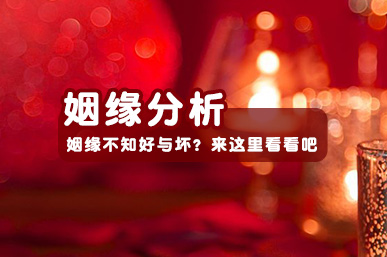老铁们,大家好,相信还有很多朋友对于生辰八字取英文名和周易算命 四柱八卦用英文怎么说的相关问题不太懂,没关系,今天就由我来为大家分享分享生辰八字取英文名以及周易算命 四柱八卦用英文怎么说的问题,文章篇幅可能偏长,希望可以帮助到大家,下面一起来看看吧!
本文目录
算命生辰八字取名字一般要多少钱周易算命 四柱八卦用英文怎么说给个外国人算八字算命没准,分地区和自己的本命的财力,看这个人的命值不值钱,也和家庭穷富有关,一般起名市面是200---500元;起牌子名要贵一些;穷人起名算命钱少,钱多拿不起,拿儿女命、名不为重,而有钱的人家就不同了,因为,名字是关系到一个人命中五行的平衡问题,是人命调和的不可缺少的步骤,名是招牌,叫金子就发光,就值钱;叫石头就顽皮,就不值钱,名如其人,一点不假,要起个好名字,不要在钱上打磨磨,要想孩子有出息,有发展,就多花钱,对儿女命好。但是,也要量力而行,如果遇到骗子,水平不高的,也没办法,要找真正的高手,不要花冤枉钱。
周易算命"Zhouyi Fortune-Telling"
四柱八字或简称八字:Four Pillars of Destiny(Ba Zi)
八卦 The eight trigrams
易经概述:
The I Ching(Wade-Giles), or“Yì Jīng”(Pinyin); also called“Classic of Changes” or“Book of Changes” is one of the oldest of the Chinese classic texts.[1] The book is a symbol system used to identify order in chance events. The text describes an ancient system of cosmology and philosophy that is intrinsic to ancient Chinese cultural beliefs. The cosmology centres on the ideas of the dynamic balance of opposites, the evolution of events as a process, and acceptance of the inevitability of change(see Philosophy, below). In Western cultures and modern East Asia, the I Ching is sometimes regarded as a system of divination. The classic consists of a series of symbols, rules for manipulating these symbols, poems, and commentary.
易经的组成:(易经和易传)
By the time of Han Wu Di(汉武帝 Hàn Wǔ Dì) of the Western Han Dynasty(circa 200 BCE), Shi Yi was often called Yi Zhuan(易传 yì zhùan,“Commentary on the I Ching”), and together with the I Ching they composed Zhou Yi(周易 zhōu yì,“Changes of Zhou”).
易经的名字解释:
*易(yì), while as a verb it implies“to change“ or'to exchange/substitute one thing for another'.
*经(jīng) here means“classic(text)”, derived from its original meaning of“regularity” or“persistency”, implying that the text describes the Ultimate Way which will not change throughout the flow of time. This same character was later appropriated to translate the Sanskrit word'sūtra' into Chinese in reference to Buddhist scripture. In this sense the two concepts, in as much as they mean'treatise,''great teaching,' or'canonical scripture,' are equivalent.
The I Ching is a"reflection of the universe in miniature." The word"I" has three meanings: ease and simplicity, change and transformation, and invariability.[2] Thus the three principles underlying the I Ching are the following:
1. Simplicity- the root of the substance. The fundamental law underlying everything in the universe is utterly plain and simple, no matter how abstruse or complex some things may appear to be.
2. Variability- the use of the substance. Everything in the universe is continually changing. By comprehending this one may realize the importance of flexibility in life and may thus cultivate the proper attitude for dealing with a multiplicity of diverse situations.
3. Persistency- the essence of the substance. While everything in the universe seems to be changing, among the changing tides there is a persistent principle, a central rule, which does not vary with space and time.
—易一名而含三义:易简一也;变易二也;不易三也。 commented on by Zheng Xuan(郑玄 zhèng xúan) in his writings Critique of I Ching(易赞 yì zàn) and Commentary on I Ching(易论 yì lùn) of Eastern Han Dynasty.
四柱:
* The four pillars is an English translation of the Chinese dynastic phrase"Shi Chen Ba Zi".
* The Chinese term(时辰八字, Shi Chen Ba Zi) literally translates to"Hour of the Eight Characters".
* It is also under the Chinese term(四柱命理学, sei cyu ming lei hok) which literally translates to"The Four Pillars Life-ology".
* It is commonly referred to by the shortened names of"Four Pillars" or"Ba Zi". One of the most frequently used alternate phrase is"Four Pillars of your birthday".
八卦:
The Bagua(Chinese:八卦; pinyin: bā guà; Wade-Giles: pa kua; literally"eight symbols") are eight diagrams used in Taoist cosmology to represent a range of interrelated concepts. Each consists of three lines, each either"broken" or"unbroken," representing a yin line or a yang line, respectively. Due to their tripartite structure, they are often referred to as"trigrams" in English.
The trigrams are related to Taiji philosophy and the Wu Xing. The ancient Chinese classic I Ching consists of the 64 pairs of trigrams(called"hexagrams") and commentary on them. The interrelationships among the trigrams are represented in two arrangements, the Primordial(先天八卦),"Earlier Heaven" or"Fuxi" bagua(伏羲八卦), and the Manifested(后天八卦),"Later Heaven," or"King Wen" bagua. The trigrams have correspondances in astronomy, astrology, geography, geomancy, anatomy, the family, and elsewhere.
The eight trigrams are: Qian天,"Heaven;" Xun风,"Wind;" Kan水,"Water;" Gen山,"Mountain;" Kun地,"Earth," Zhen雷"Thunder," Li火,"Fire;" and Dui泽,"Lake."
1、如果单从命理上来说,因每个人出生的方位不同,命理也有差异。
举个例子:乾隆皇帝微服私访的时候,遇到一个很富有的木材商人,他俩的生辰八字都一样。
于是他就到一个先生那里批八字算命,先生说:这是万岁的八字啊。
乾隆说:不是,你再算。
先生说:有这个生辰八字的人,生于东方则为盐商,生于南方则为木材商,生于西方则为乞丐,生于北方则为人王地主。
这就是为什么同时出生的人很多,但命运各不相同的原因。
2、科学家证明,男人好色是由基因决定的,这是正常的。这是大自然的“性魔法”。那些不好色或不喜欢女人的男人反而是不正常的。
凡是男人们很喜欢的女人,她们脸型圆滑、体型匀称,说明雌激素分泌正常,身体健康。男人们这种“潜在的”审美观,正是大自然想让优秀的种子延续下去,这是自然选择的结果。
所以男人都好色,但是如果一个男人能够用道德约束自己的一些欲望,他就是一个优秀的人。
关于生辰八字取英文名的内容到此结束,希望对大家有所帮助。









